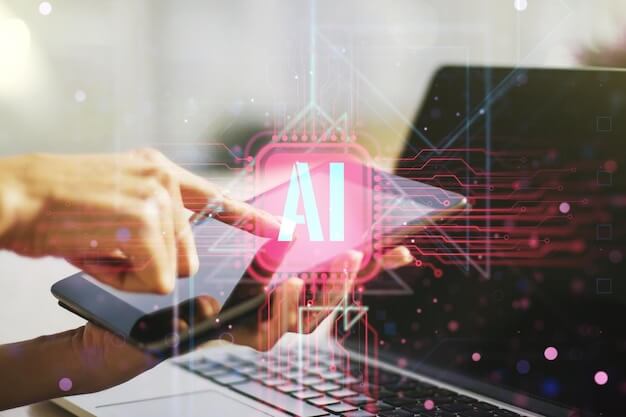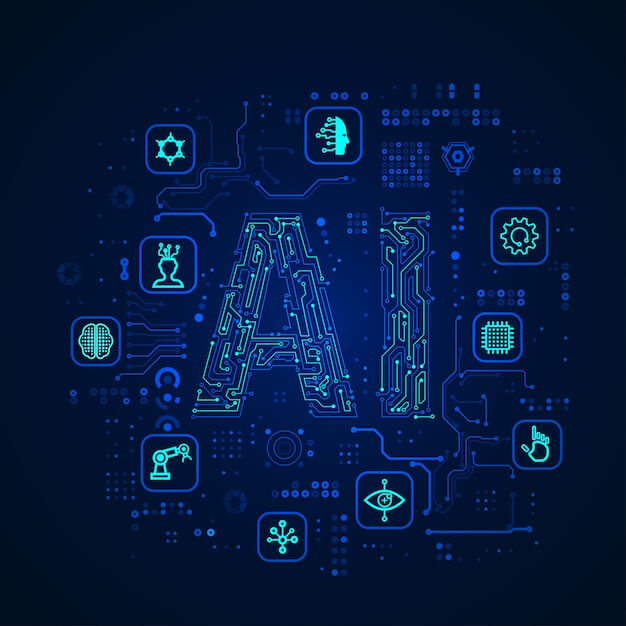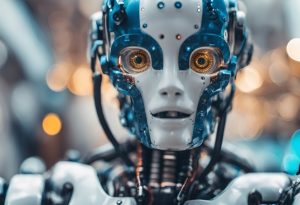Artificial Intelligence (AI) and Information Technology (IT) are two interconnected fields that have revolutionized various industries. AI refers to the development of intelligent machines capable of performing tasks that typically require human intelligence, such as speech recognition, problem-solving, and learning. On the other hand, IT encompasses the use and management of computers, software, networks, and databases to store, retrieve, transmit, and manipulate data. This article aims to provide a comprehensive understanding of the basics of Artificial Intelligence and Information Technology, their applications, and their impact on society.

What is Artificial Intelligence?
Artificial Intelligence refers to the creation of intelligent machines that can simulate human cognitive abilities. These machines are programmed to perform tasks such as visual perception, speech recognition, decision-making, and problem-solving. AI systems can be broadly categorized into two types: narrow AI and general AI.
Narrow AI
Narrow AI, also known as weak AI, refers to AI systems that are designed to perform specific tasks within a limited domain. These systems excel at specialized tasks, such as facial recognition, natural language processing, and recommendation algorithms. Narrow AI is widely used in various industries, including healthcare, finance, and marketing.
General AI
General AI, also known as strong AI, aims to develop machines that possess the same level of intelligence and cognitive abilities as humans. These machines would be capable of understanding, learning, and applying knowledge across different domains. However, the development of general AI is still a work in progress and poses significant technical and ethical challenges.
Applications of Artificial Intelligence
AI has found numerous applications across various industries, transforming the way we live and work. Here are some notable applications of AI:
1. Healthcare
AI has the potential to revolutionize healthcare by improving diagnostics, drug discovery, and patient care. AI algorithms can analyze medical images, such as X-rays and MRIs, to aid in the detection of diseases. Additionally, AI-powered chatbots and virtual assistants can provide personalized healthcare advice and support.
2. Finance
The finance industry extensively utilizes AI for tasks such as fraud detection, risk assessment, and algorithmic trading. AI algorithms can analyze large volumes of financial data to identify patterns and anomalies, enabling more accurate predictions and decision-making.
3. Transportation
AI plays a crucial role in autonomous vehicles, optimizing traffic flow, and enhancing transportation safety. Self-driving cars rely on AI algorithms to perceive the environment, make decisions, and navigate complex road conditions.
4. Customer Service
AI-powered chatbots are increasingly being used in customer service to handle customer inquiries and provide real-time assistance. These chatbots use natural language processing techniques to understand and respond to customer queries effectively.
5. Education
AI has the potential to transform education by personalizing learning experiences and providing intelligent tutoring. AI-powered educational platforms can adapt to individual students’ needs, offering customized content and feedback to enhance learning outcomes.
6. Entertainment
AI is revolutionizing the entertainment industry through applications such as recommendation systems, content creation, and virtual reality experiences. Recommendation algorithms analyze user preferences to provide personalized content recommendations, while AI-generated content, such as music and artwork, is gaining popularity.
Read Also: Brand Awareness for Start-Ups.
What is Information Technology?
Information Technology refers to the use and management of computers, software, networks, and databases to store, retrieve, transmit, and manipulate data. IT encompasses various domains, including hardware, software development, networking, cybersecurity, and database management.
Hardware
IT hardware includes computer systems, servers, storage devices, networking equipment, and peripherals. Hardware engineers design, develop, and maintain these components to ensure efficient and reliable computing systems.
Software Development
Software development involves the creation, testing, and maintenance of computer programs and applications. Software developers utilize programming languages and frameworks to design and build software solutions tailored to specific needs, such as web development, mobile app development, and enterprise software.
Networking
Networking involves the design, implementation, and management of computer networks that enable data communication and resource sharing. Network engineers configure routers, switches, and firewalls to ensure secure and efficient data transmission across networks.
Cybersecurity
Cybersecurity focuses on protecting computer systems and networks from unauthorized access, data breaches, and other malicious activities. Cybersecurity professionals implement security measures, such as firewalls, encryption, and intrusion detection systems, to safeguard sensitive information.
Database Management
Database management involves the organization, storage, and retrieval of data using database management systems. Database administrators design and maintain databases, ensuring data integrity, security, and efficient data retrieval.

FAQs (Frequently Asked Questions)
1. What are the ethical implications of Artificial Intelligence?
AI raises important ethical considerations, such as privacy, bias, and job displacement. As AI systems process vast amounts of data, protecting individual privacy becomes crucial. Additionally, biased data or algorithmic bias can lead to unfair outcomes. Lastly, the automation of certain tasks may result in job displacement, necessitating measures for reskilling and upskilling the workforce.
2. How does AI impact job opportunities?
AI has the potential to automate repetitive and mundane tasks, allowing humans to focus on higher-value work. While certain jobs may become obsolete, new job opportunities will emerge in areas such as AI development, data analysis, and human-AI collaboration.
3. What are the key skills required for a career in IT?
A career in IT requires a combination of technical and soft skills. Technical skills include programming, networking, cybersecurity, and database management. Soft skills such as communication, problem-solving, and adaptability are also crucial for success in the IT industry.
4. How can AI improve cybersecurity?
AI (Artificial Intelligence)can enhance cybersecurity by detecting and responding to security threats in real-time. AI-powered systems can analyze network traffic patterns, identify anomalies, and proactively prevent potential cyberattacks. Additionally, AI can assist in automated threat intelligence, reducing response time and improving overall security.
5. What are the emerging trends in AI and IT?
Some emerging trends in AI (Artificial Intelligence) and IT include edge computing, augmented reality, quantum computing, and explainable AI. Edge computing brings computation and data storage closer to the source, enabling faster processing and reduced latency. Augmented reality integrates virtual elements into the real world, creating immersive experiences. Quantum computing explores the potential of quantum phenomena to solve complex computational problems. Explainable AI focuses on developing AI systems that can provide understandable explanations for their decisions and recommendations.
6. How can AI and IT work together?
AI (Artificial Intelligence) and IT are closely intertwined, with AI leveraging IT infrastructure and tools for its development and deployment. IT plays a crucial role in providing the necessary computing power, storage, and networking capabilities required for AI (Artificial Intelligence) applications. Simultaneously, AI can enhance various IT processes, such as automation, intelligent analytics, and cybersecurity.

AI in Marketing
Facebook LinkedIn Twitter WhatsApp Email Telegram Introduction:In the 21st century it is obvious technology dictates progress in many areas of business operation and expansion, artificial

Mastering Time Management While Working Remotely
Facebook LinkedIn Twitter WhatsApp Email Telegram Working at home is often considered to be easy-going and less stressful than traditional work environments, but did you

How to Build Trust with Customers in the Competitive E-Commerce Industry
Facebook LinkedIn Twitter WhatsApp Email Telegram Building trust with customers in the competitive e-commerce industry is crucial for long-term success and customer loyalty. Here are

The Power of Social Media in Real Estate Marketing: Tips and Best Practices
Facebook LinkedIn Twitter WhatsApp Email Telegram Social media is a powerful tool for businesses to reach and engage with their target audience. In the real

The Importance of Google Brand Awareness: A Comprehensive Guide
Facebook LinkedIn Twitter WhatsApp Email Telegram In today’s digital age, brand awareness plays a crucial role in the success of any business. With millions of

The Connection Between Employee Satisfaction and Customer Service
Facebook LinkedIn Twitter WhatsApp Email Telegram In today’s competitive business landscape, companies are constantly seeking ways to enhance their customer service and gain a competitive
